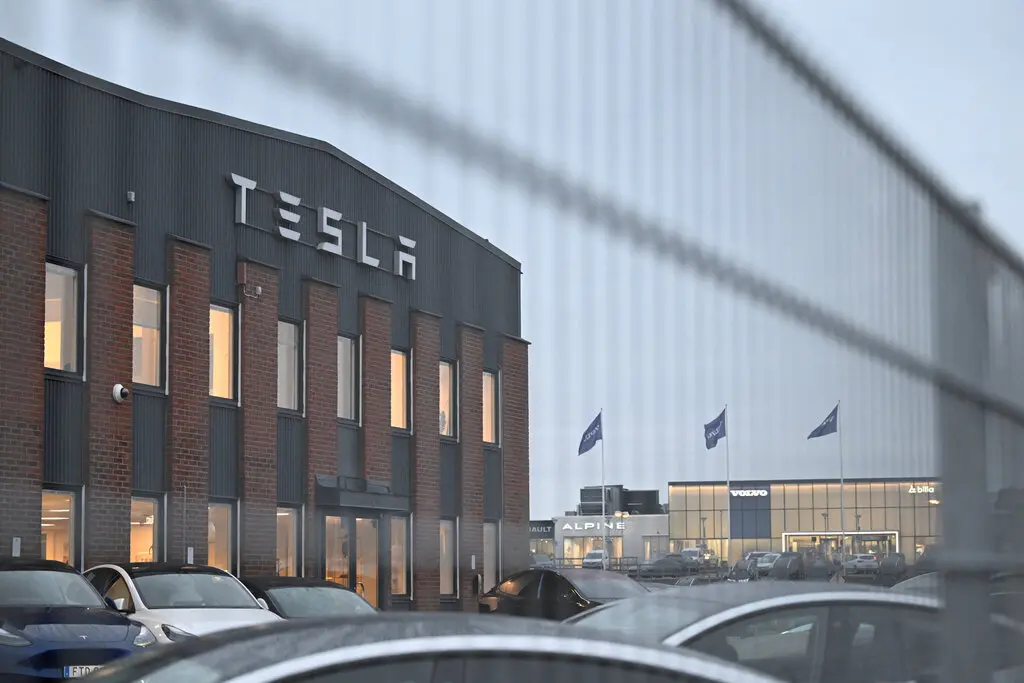
Sunah Chang is a student at Harvard Law School.
In today’s news and commentary: New York plaintiffs file workplace sexual assault claims in the days leading up to the Adult Survivors Act deadline, the NLRB dismisses claims that Tesla illegally fired workers for union activity, and voters across party lines express overwhelming support for federal paid leave in new polling.
The Adult Survivors Act, a New York state law which paved a one-year period for sexual assault survivors to file expired civil lawsuits, closed its one-year window on Thanksgiving day, leading to a slew of new lawsuits filed before the deadline. The final wave of lawsuits include cases against high-profile figures alleging incidents of workplace sexual violence. In one such lawsuit, a former administrative aide for the NYPD has accused Mayor Eric Adams of sexually assaulting her when he was an NYPD transit officer in 1993. The lawsuit also involves claims of battery, employment discrimination, retaliation and intentional infliction of emotional distress. Former New York Governor Andrew Cuomo has also been named in a new sexual assault lawsuit filed by his former executive assistant, Brittany Commisso. Commisso was one of eleven women whose allegations of sexual misconduct against Cuomo were substantiated in a 2021 investigation by Attorney General Letitia James. In addition to accusing Cuomo of “continuous sexual harassment,” Commisso’s lawsuit also alleges that she faced retaliation after rejecting Cuomo’s sexual advances and reporting his misconduct.
The NLRB dismissed a case filed by Workers United, which had claimed that Tesla illegally fired employees for union organizing efforts. The union had alleged that Tesla fired dozens of workers from its Autopilot department in Buffalo, New York after the workers announced a union campaign. In response, Tesla claimed that the terminations were based on routine performance reviews, not union-related activity. Although the NLRB dismissed the case, it found merit to claims that Tesla had violated labor law in other ways. If the parties do not settle on those remaining claims, the NLRB will issue a complaint against Tesla to be heard by an administrative judge. Workers United has also announced that it will seek a reversal of the case’s dismissal from the NLRB general counsel’s Office of Appeals.
Tesla has become the major target of union organizing efforts, particularly in light of union successes against the Big Three automakers this year. UAW President Shawn Fain has been explicit about his vision of organizing workers at Tesla, a sentiment backed by President Biden. However, the NLRB’s dismissal of the case in Buffalo signals another obstacle for labor organizing efforts at Tesla. As Andrew wrote last week, the Fifth Circuit recently held that Tesla’s ban on union apparel did not violate labor law, sidestepping an NLRB decision to the contrary. Despite these setbacks, significant organizing efforts and calls for unionization continue to rock the company, including an ongoing strike by workers in Sweden.
Looking ahead to the 2024 election, new polling data shows that the majority of voters across partisan lines support the creation of a federal paid leave program. A new poll by Lake Research Partners has found that 85 percent of voters in battleground states favor paid leave. Controlling for party affiliation, this number breaks down to 96 percent of Democrats, 82 percent of independents, and 76 percent of Republicans who support paid leave. Currently, the United States is the only industrialized country that does not mandate paid parental or sick leave for workers. This disproportionately harms low-income workers and workers of color, who are less likely to receive paid leave from their employers. While recent efforts to pass paid leave legislation have stalled in Congress, advocates plan to elevate paid leave policies as a major priority for the 2024 election.






Daily News & Commentary
Start your day with our roundup of the latest labor developments. See all
March 4
The NLRB and Ex-Cell-O; top aides to Labor Secretary resign; attacks on the Federal Mediation and Conciliation Service
March 3
Texas dismantles contracting program for minorities; NextEra settles ERISA lawsuit; Chipotle beats an age discrimination suit.
March 2
Block lays off over 4,000 workers; H-1B fee data is revealed.
March 1
The NLRB officially rescinds the Biden-era standard for determining joint-employer status; the DOL proposes a rule that would rescind the Biden-era standard for determining independent contractor status; and Walmart pays $100 million for deceiving delivery drivers regarding wages and tips.
February 27
The Ninth Circuit allows Trump to dismantle certain government unions based on national security concerns; and the DOL set to focus enforcement on firms with “outsized market power.”
February 26
Workplace AI regulations proposed in Michigan; en banc D.C. Circuit hears oral argument in CFPB case; white police officers sue Philadelphia over DEI policy.